Five years after its magical first season, True Detective is finally back - in more ways than one. Not only are there brand new episodes, but they're actually fairly compelling this time. That's more than you could ever say for that embarrassment of a second season with its uninspired performances (not to shame anyone, but, well, actually let's shame Vince Vaughn) and plot holes you could drive a mack truck through. However, even with Mahershala Ali capably taking over as the face of the franchise (at least for now) I can't help but look back at that first season and miss what once was.
Ah, that first seasonThe most indelible image of True Detective - the thing HBO's marketing department made sure to splash all over posters and T-shirts - is Woody Harrelson and Matthew McConaugheyin that damn car together. The blue-collar philanderer and his new partner, the cosmic hobo, debating philosophy and the nature of time (flat circle, right?) while also trying to, you know, solve a murder mystery. True Detective will never shake this imagery. In fact, pop culture is still stuck watching McConaughey wax rhapsodic about God knows what from the seat of a car thanks to Lincoln's series of highly mockable car commercials which seem to play during every sporting event ever.
SNL had fun with it:
Little did we know at the time how much those car scenes mirrored reality. , McConaughey - in the middle of his McConaissance at the time - practically speaks a different language than Harrelson, which could also describe the dysfunctional working relationship between creator/writer Nic Pizzolatto and director Cary Fukunaga. The former wrote every episode and the latter directed all of them, including the iconic 6-minute long take in the fourth episode which takes McConaughey making his way through a robbery.
"I mean, there's nothing really that inventive about [True Detective]. It's just another crime drama." - Says the Guy Who Directed Every Episode of the First SeasonFukunaga, a former pro snowboarder who had directed two features (Sin Nombre, Jane Eyre) before breaking through with True Detective, now admits he simply included the shot to inject some fun into a series he otherwise viewed as being rather talk-heavy. "I mean, there's nothing really that inventive about [ True Detective]," he told GQ last year. "It's just another crime drama."
Them's fighting words to Pizzolatto, a former literature professor who moved to California to pursue screenwriting in 2010 and spent years developing True Detective while picking up on some of the tools of the trade as a staff writer for The Killing. "Just another crime drama"? Um, do all TV crime dramas follow the same case over three different time periods to touch on the long-term personal toll for all involved while also devoting entire monologues to the central tenants of philosopher Thomas Ligotti's The Conspiracy Against the Human Race? Yeah, sure. NCIS does that kind of thing all the time.
Of course, while Pizzolatto would be right to dispute Fukunaga's characterization of the show he's also the same guy who tried to prevent this iconic shot from ever happening:
"Nic wanted to cut it up in post-production," Fukunaga now says. "He did not like that I was pushing for that one at all." Yet it wowed audiences.
The disagreement over this particular Steadicam sequence was but one of the reportedly many falling outs between Fukunaga and Pizzolatto throughout production. They mostly kept that out of the press, freeing the pair to fully embrace their victory lap at one award show after another.
What they've done since the first seasonWhen Fukunaga opted out of returning for a second season tales of their fractured working relationship soon became the juiciest gossip in town. Thus, some met the failed second season with a fair amount of schadenfreude, suspecting Pizzolatto had let all the acclaim go to his head. He thought he could do it all on his own; he was wrong.
Fukunaga, for his part, wasn't exactly turning into God's gift to film fans or film crews, for that matter. After True Detective, He nearly died from malaria while making a good Netflix movie ( Beasts of No Nation) which not nearly enough people have seen. High profile projects he helped develop - New Line's It and TNT's The Alienist - ended up being directed by others after he left (or was pushed out, depending who you believe) just prior to production. "Between directing Beasts of No Nation and directing Maniac, it was three and a half years of no production," he told GQ. "You're like, 'I'm in the prime of my directing life.' That's a long time."
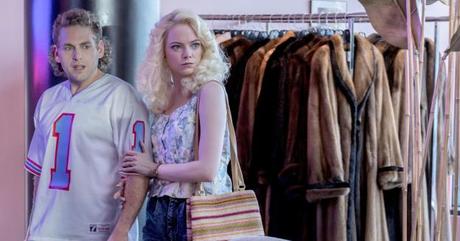
Salvation finally came in the form of Maniac, a buzzy, Netflix Original loosely adapted from a Norwegian black comedy about the colorful delusions of a psych ward patient. Fugunaka partnered with novelist Patrick Somerville to write the scripts, turning the DNA of the Norwegian original into an Eternal Sunshine-esque story about the intersection of technology and the minds of two broken people (Emma Stone, Jonah Hill) enrolled in an experimental pharmaceutical trial overseen by cartoonish doctors (Justin Theroux, Sonoya Mizuno) and a manic depressive A.I. (Sally Field). Then, because this is Fukunaka we're talking about here, he threw out half of the completed scripts three months prior to the start of filming, making life harder for everyone even though it was probably the right move, creatively:
"That was me. I was saying this wasn't good enough. We need to look at this again and tear it apart and go again." In the original drafts, the hallucinations-explorations of other worlds, in which Jonah Hill might play, say, a Long Island house husband in a Warren Moon jersey-were not very present. "I was like, 'The whole joy in this is to be able to play with different worlds and we're not doing that. So we need to figure out a way to make that happen.'"
The result is an undeniably entertaining series, one I had a blast binging last year. However, it forever borders on being more style than substance, a storyline born out of a desire to simply create a bunch of different genre pastiches. Fukunaga admitted the arc of the season was greatly adjusted to match the Netflix algorithm's suggestions for how best to maintain audience interest, which does show in the way Maniac frequently and quite abruptly stops to explain everything for the more easily distracted members of the audience. It gives the whole thing an odd feel, playing kind of like an idiosyncratic solo album from an artist you wish would just get back together with the band, especially since they all work best together, not separately.
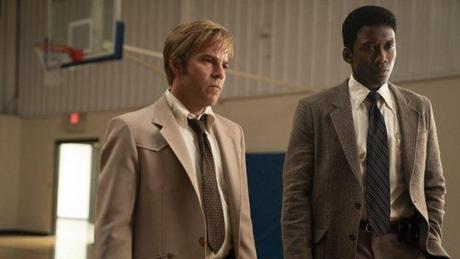
That's not happening anytime soon, though. Fukunaga was hired late last year to direct the next James Bond movie, a project sure to take up the next 2-3 years of his life. Pizzolatto, meanwhile, is busy eating humble pie, honestly just lucky to even get a third season of True Detective. It's been three years since Rachel McAdams, Colin Farrell, and Vince Vaughn collectively did season two in pursuit of some of that first season magic and found the well had run dry. Their work was so widely hated Andy Samberg joked about it at the 2015 Emmy's: "We also said goodbye to True Detective - even though it's still on the air."
How True Detective came back after 3 years off the airTrue Detective owes its unlikely resurrection to Casey Bloys, who took over as head of drama at HBO in early 2016 and was promoted to president of the network a few months later. Contrary to Samberg's joke, very few actually did say goodbye to True Detective's second season. Ratings were only down a modest 8%, which Bloys saw as being due to the enduring interest in the True Detective brand. In today's Hollywood, one does not simply walk away from a bankable brand, not if they want to keep their job.
The diagnosis, thus, was this: True Detective failed simply because they rushed a second season before its was ready, s omething Bloys' predecessor, Michael Lombardo, took the blame for in an interview with The Frame. The fans would be there for them again if they could deliver the goods next time. "We had a conversation with Nic, which was, let's take our time and get this right," Bloys told Vulture. "Let's get a pass that we're really excited about. And let's not rush to do it, just to do it. I don't think Nic had any interest in doing that, nor did we."
The competition got betterAs they waited for the right story and inspiration to come, the rest of the TV industry caught up with them damn fast. Gritty crime dramas - think Ozark, Mindhunters, Mr. Mercedes - and true-crime docu-series/podcasts are everywhere. Noah Hawley has used Fargo and Legion to top Fukunaga's Steadicam shot at least three different times now. The formula of using the minimal commitment of a limited series to attract movie stars to TV is now standard operating procedure, especially as the blockbuster-happy film studios push more and more challenge-starved actors in that direction. See: Emma Stone and Jonah Hill on Maniac, Wonder Woman's Patty Jenkins and Chris Pine reuniting for TNT's true-crime drama I Am the Night, pretty much everyone on Big Little Lies.
Is Season 3 worth watching?So, with True Detective: Season 3 finally here the question is rather it really stands out anymore? The answer is: how much do you love Mahershala Ali? If the answer is at least "a little," then you are in for a treat. The prior seasons of the show have tried to be co-headlining gigs for multiple A-listers. This new season, however, is a Mahershala Ali showcase, delving deep into his character's obsession with a missing person case he first works as a copy in the Ozarks in 1980 before revisiting again in 1990 and 2015. Over the years, he battles loneliness, racism, trace PTSD symptoms from his Vietnam experience, and eventually and most heartbreakingly memory loss in old age. After two episodes, his white partner played by Stephen Dorff is the definition of forgettable and underdeveloped.
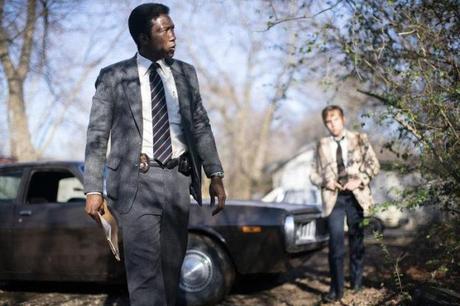
Still, this is True Detective. As I stated at the start, there has to be talking and driving scenes, and that's where the change this season feels most apparent. Ali and Dorff have no real rapport or chemistry together as partners. In the first two episodes, they've spent their time in the car discussing boar hunting and the minute details of the case ( spoiler: a missing boy's body is found dead in a suspicious ritualistic cave scenario and his missing sister remains missing for 10 years). All standard stuff, but decidedly unexceptional. The only hint of something more between the pair is an argument about institutional racism after the D.A. goes over their heads and spoils their one good lead.
"I don't speak their language. They're part of your tribe! Get your shit together!" yells Ali at a dumbfounded Dorff, who naively believes race had nothing to do with their white superiors ignoring Ali's wishes.
With only 2 episodes aired and 6 remaining in the season, it's unclear how much or a role race will play in the storyline. The lead roles have been race-switched at Ali's request since he originally read for Dorff's part but asked to read for the lead instead even though the character was written to be a white man. What seems more clear is this season will play with memory far more than ever before, getting its best dramatic material out of an older Ali sitting down to be interviewed for a true-crime documentary and struggling to hide his cognitive issues.
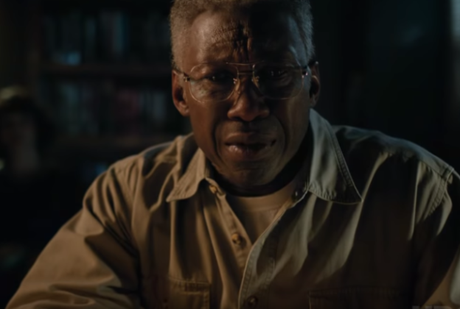
Pizzolatto, for better or worse, tries something different with each season. With the second season, he tried to include the criminal's point of view as well as the detective's. With this season, he's at least nodding toward race and narrowing its focus to just one detective and his family, including a wife who ends up writing a best-selling true-crime novel about the case. The results feel slightly less special because True Detective 's return is less about charting a new path forward for TV crime drama and more a case of simply trying to hang with the suddenly formidable competition. Short of reuniting McConaughey and Harrelson, the magic is never coming back because the entire landscape of TV is so different now.
I don't know if having Fukunaga behind the camera would improve the new True Detective or if at least getting some script notes from Pizzolatto would have helped sand off some of Maniac's rougher edges. However, it's 5 years later and they're both back with projects which are easily worth watching. I'll take it. I just have to adjust to a version of True Detective where the car scenes are the least interesting part of the show.
What are your thoughts on True Detective's new and/or prior seasons? Or are you simply disappointed I didn't find a way to fit in a reference to Alexandra Daddario since True Detective launched her career? Well, I guess I kind of just did find a way. Still, leave a comment about that or anything else below.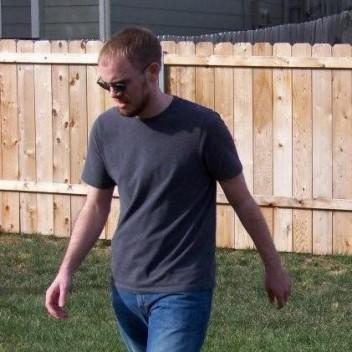
Grew up obsessing over movies and TV shows. Worked in a video store. Minored in film at college because my college didn't offer a film major. Worked in academia for a while. Have been freelance writing and running this blog since 2013. View all posts by Kelly Konda

